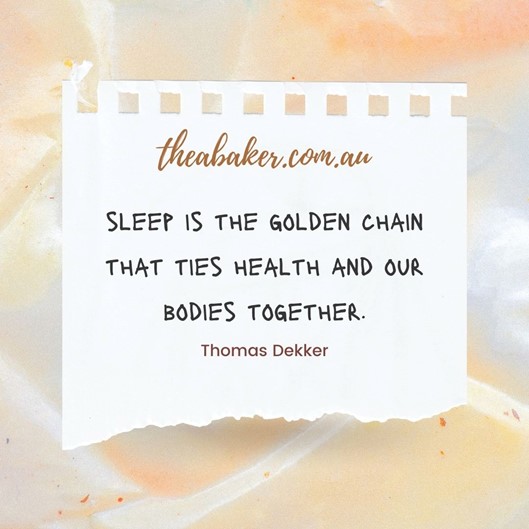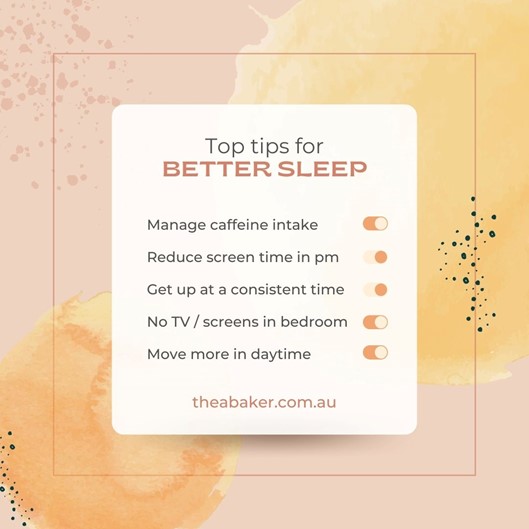Sleep and mental health
Sleep and mental health
Sometimes I think my clients are doing some kind of internal eye-roll when I ask them, as I do most sessions, “so how has your sleep been?” It’s almost as if they think I’ve run out of things to explore and so I’m opting to talk about something really basic and dull! The thing is, we are beginning to fully understand the deeply important role sleep has in terms of protecting mental health and conversely, the significant negative impact that poor sleep plays in conditions like anxiety, depression, bi-polar disorder, ADHD, PTSD and OCD.
Sleep, whilst super basic is super important. Without good restful sleep lots of things can get funky and whilst we don’t fully understand the drivers and connections between sleep and mental health FMRI studies and developments in neurochemistry studies suggest that a ‘good night’s sleep’ helps foster both mental and emotional resilience, whilst chronic sleep deprivation (insomnia and the like) sets the stage for negative thinking and emotional vulnerability (www.health.harvard.edu).
Funky sleep
There’s SO much out there on sleep at the moment – a few of my absolute favourite places for this research are listed below. A bit like knowing that we ‘should’ eat a rainbow of fruits and vegetables every day, eating wholefoods and reducing our sodium intake in the world of nutrition, when it comes to sleep, we know that we ‘should’ be getting 7-9 hours quality sleep a night waking fully rested. That’s a really tough ask for many of us for a whole host of reasons – parenting, stress, work patterns amongst a few. On the nights that we lie awake, tossing and turning the anxiety around not having a good night’s sleep is often enough to ensure we can’t fall asleep!
What we do know is that adults who experience poor sleep – such as trouble falling asleep or waking through the night are at risk of developing mental health problems. There’s a lot of research focusing on depression to date, poor sleep may also predispose adults to other mental health disorders such as anxiety, panic disorder and PTSD (Cox & Olatunji, 2016). Suicidal ideation and suicide attempts are more likely to be increased in people who have short sleep and adults experiencing the symptoms of insomnia (Pigeon et al., 2012).
Research also suggests that for every hour of sleep you miss at night there is a:
- 14% increase in risk of unpleasant emotions or feelings that affect day to day function
- 38% increase in the chance of feeling sad and hopeless
- 42% increase in the chance of having thoughts of suicide
- 58% increase in the change of suicidal behaviour
- 23% increase in the chance of using tobacco, alcohol or marijuana
Improving your sleep situation
The good news is that with all this research there are a LOT of resources out there for improving our sleep. Here’s a few areas to explore:
- Health:
It’s worth exploring whether there are any underlying physical health conditions that might be playing a role in any disturbed sleep, such as sleep apnea. Also worth exploring is any side-effects of medication that you might be taking.
- Environment:
Closely aligned with sleep hygiene. Good sleep hygiene looks like keeping bedrooms for bedroom activities – sleep (obviously), sex, maybe reading – and activities like eating, watching TV and screens outside of the bedroom. Getting phones on charge and outside of our bedrooms is so important for removing the temptation of turning to check the time / mindless scrolling if sleep is problematic. Also keeping the room at a cool(ish) temperature with appropriate curtains or blinds to navigate outside light.
- Attitude:
This one is more about heading to bed with a good mindset – setting aside our worries and stressors of the day by applying some good old relaxation or meditation techniques: warm baths, mindfulness practice, reading before bed with a warm drink.
- Lifestyle:
What we eat and drink during the day can play havoc with our sleep patterns. Stimulants like caffeine or energy drinks can cause significant disruption to our ability to fall asleep. Alcohol might make it feel like it’s easier to fall asleep but what the research suggests is that we inevitably have a poorer quality of sleep. Likewise, research correlates sleep to exercise – if we move our body during the day, we tend to sleep better during the night.
Check out these awesome sleep research resources:
Huberman Lab: https://hubermanlab.com/master-your-sleep-and-be-more-alert-when-awake/
- Prof Matthew Walker talking to Dr Rangan Chatterjee: https://youtu.be/X_eWDhXxziU
- The Matt Walker podcast (brand new): https://themattwalkerpodcast.buzzsprout.com/
If you need someone to talk to about your sleep issues, we have a team of therapists at Thea Baker Wellbeing available – please reach out to us at: hello@theabaker.com.au / 03 9077 8194.


